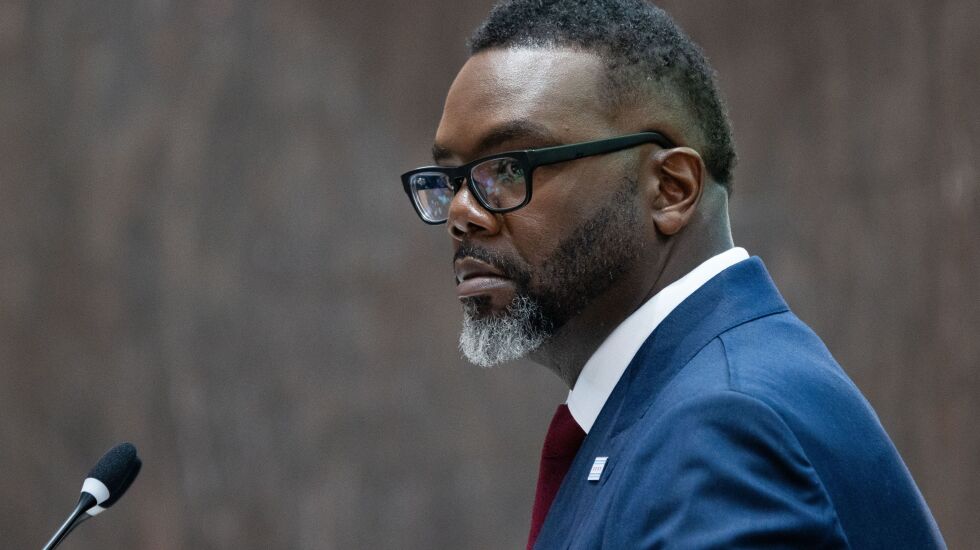
Be careful what you wish for.
We all share a desire for improved support for Chicago’s unhoused population. However, the Bring Chicago Home initiative, funded through substantial increases in real estate transfer taxes as currently proposed, will have unintended consequences that hurt Chicago’s homeowners, renters and businesses while weakening our already struggling economy.
On the surface, this proposal’s well-intentioned goal of raising transfer taxes on properties over $1 million seems like an appealing solution to homelessness. To add to its allure, it’s even packaged as a tax cut for some homeowners. However, the initiative lacks a clear plan.
The city has been unable or unwilling to explain why only a fraction of current federal, state, and city funds allocated for the unhoused population have been used. Taxpayers deserve transparency regarding fund allocation and effectiveness, especially how the $100 million in new real estate transfer tax funds will be used. The City Council should demand those answers before voting to put the real estate transfer tax on the ballot.
Beneath the enticing surface, this proposal imposes hidden burdens on homeowners, renters and businesses. Our coalition of real estate, business, and contractor groups are united in our concern over the proposed initiative’s impact. While we all want to support Chicago’s unhoused, we must work together to achieve this goal while simultaneously strengthening Chicago’s economy, creating more jobs, and expanding our tax base to protect taxpayers.
Greater tax burden over time
One of our primary concerns is the impact on homeowners and renters. While some may benefit from reduced transfer taxes when selling their home, they will face higher property tax increases annually as downtown values decline. For a city still recovering from the economic challenges posed by the COVID-19 pandemic, these additional financial burdens could not come at a worse time.
Commercial buildings, vital to Chicago’s economy, are in severe distress. The post-pandemic era has seen less than half of workers returning to their offices, resulting in the highest vacancy rate in 75 years.
With enough unoccupied downtown office space to fill 16 Willis Towers, experts project downtown office buildings could lose up to 50% of their value. Downtown office buildings paid over $1 billion to property taxes in 2022; more than $500 million in property tax burden could be shifted to homeowners, potentially increasing residential property taxes up from 10% to 20%. For a $250,000 home, this would mean a substantial increase of $450 to $900 in a property tax bill.
Renters will also feel the impact. As transactions on rental properties incur millions in higher transfer taxes, rents will need to be raised to offset the increased purchase price. This will disproportionately affect affordable housing, including three-story walk-ups and larger apartment buildings that fill our city’s neighborhoods. These units are often home to young people just starting out and our seniors.
Small neighborhood commercial buildings and business owners also will not be spared. Investors in smaller buildings who may be investing to build family wealth or save for their children’s college tuition will face huge increases in the real estate transfer tax. Coupled with high interest rates, it will make financing property purchases nearly impossible.
Perhaps the most concerning is the threat of disinvestment that will hurt Chicago as a whole. Investments in Chicago come from all over the globe, and investors have countless choices on where to invest. As Chicago increases investment costs, it discourages both large and small investors from exploring opportunities in our city. This could lead to declining property values, attracting speculators who may neglect their buildings and communities, ultimately failing to create jobs.
Chicago taxpayers deserve a better strategy that encourages investment, creates jobs and grows our tax base. This can only happen by engaging all stakeholders in the real estate, business and contractor community. The unhoused deserve a comprehensive plan that only comes with transparency, something that rests in the hands of the Chicago City Council and the mayor.
Farzin Parang is executive director of the Building Owners and Managers Association of Chicago. Jack Lavin is president and CEO of the Chicagoland Chamber of Commerce. Tom Cuculich is executive director of Chicagoland Associated General Contractors.
Other coalition members: Association of Industrial Real Estate Brokers; Association of Subcontractors and Affiliates; Building Industry Association of Greater Chicago; Chicagoland Apartment Association; Chicagoland Association of Shopping Center Owners (CASCO); International Council of Shopping Centers; NAIOP Chicago, a commercial real estate development association; Neighborhood Building Owners Alliance; and Women Construction Owners and Executives.
The Sun-Times welcomes letters to the editor and op-eds. See our guidelines.
The views and opinions expressed by contributors are their own and do not necessarily reflect those of the Chicago Sun-Times or any of its affiliates.







